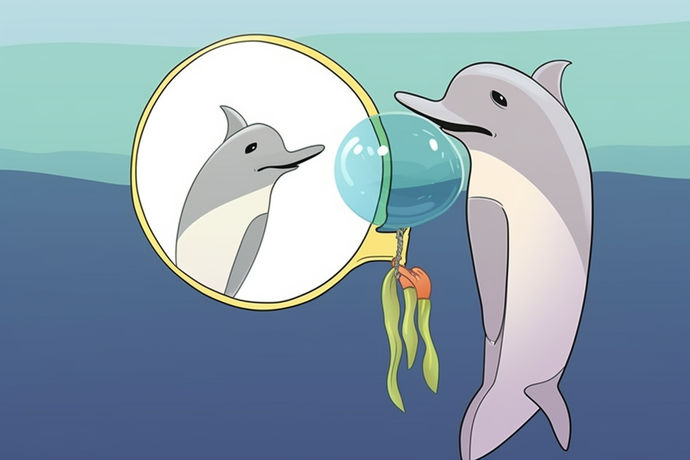Consciousness
Consciousness is an individual's subjective awareness of their thoughts, feelings, and surroundings, split into phenomenal and access consciousness, with its biological basis remaining largely unexplained.
#TLDR
- Consciousness is an individual's awareness of their unique thoughts, feelings, sensations, and surroundings.
- It's a subjective experience that can be influenced by attention, sleep, and certain substances.
- Consciousness is typically split into phenomenal consciousness, involving experiences, and access consciousness, the ability to report experiences.
- The exact biological basis of consciousness, often called the "hard problem", remains largely unexplained despite extensive research.
- Consciousness is also associated with self-awareness, the ability to recognize oneself as separate from the environment and other individuals.
- 🧠Phenomenal vs Access Consciousness: This section will delve into the distinction between phenomenal consciousness, which refers to the subjective experience of the mind, and access consciousness, which pertains to the mind's ability to process and utilize information. We'll explore how these two aspects of consciousness interact and contribute to our overall cognitive experience.
- 🧬Biological Basis of Consciousness: Here, we'll examine the biological mechanisms that underpin consciousness. We'll discuss the role of various brain structures, neurotransmitters, and neural networks in facilitating conscious thought, emotion, and perception.
- 🎭Theories of Consciousness: This part will present an overview of the major theories proposed to explain the nature and origin of consciousness. From dualism to physicalism, and from quantum theories to information theories, we'll explore the diverse perspectives on what consciousness is and how it arises.
- 👁️Consciousness and Perception: This section will explore the relationship between consciousness and perception. We'll discuss how our conscious awareness influences the way we perceive the world around us, and how our perceptions, in turn, shape our conscious experience.
- 🐾Consciousness in Non-Human Animals: Here, we'll delve into the contentious issue of consciousness in non-human animals. We'll examine the scientific evidence for animal consciousness and discuss the ethical implications of these findings.
- 🌀Altered States of Consciousness: This part will explore altered states of consciousness, such as those induced by meditation, hypnosis, or psychoactive substances. We'll discuss the characteristics of these states and their potential implications for our understanding of consciousness.
- 🤖Consciousness and Artificial Intelligence: This section will discuss the possibility of consciousness in artificial intelligence. We'll explore the current state of AI research, the philosophical debates surrounding machine consciousness, and the potential implications for society.
- 📚Philosophical Perspectives on Consciousness: Finally, we'll delve into the philosophical perspectives on consciousness. We'll explore questions about the nature of reality, the self, and the mind, and how these philosophical inquiries intersect with scientific understandings of consciousness.

Interesting & Controversial
The glowing brain, symbolizing consciousness. (AI generated image)
- 🧠"Hard Problem" Debate: The "hard problem" of consciousness, coined by philosopher David Chalmers, refers to the question of how and why we have subjective experiences. Despite advancements in neuroscience, this remains a deeply perplexing issue. Some argue that it may never be solved, while others believe that future scientific breakthroughs could provide the answer.
- 💤Consciousness in Coma Patients: Recent studies have revealed that some coma patients may retain a degree of consciousness. Using advanced brain imaging techniques, researchers have detected signs of awareness in patients who were previously thought to be completely unconscious. This raises profound ethical and medical questions about how we define and treat states of unconsciousness.
- 🔬Quantum Physics Connection: Some theorists propose that quantum physics may hold the key to understanding consciousness. The controversial Orch-OR theory, for instance, suggests that quantum processes within brain cells could give rise to conscious experience. While intriguing, this theory remains highly debated and unproven.
- 🌙Consciousness and Dreams: Dreams are a fascinating aspect of consciousness. They demonstrate that our minds can generate complex, immersive realities while we sleep. The study of dreaming not only provides insights into our subconscious mind but also poses challenging questions about the nature of reality itself.
- 🐒Animal Consciousness Controversy: The question of whether non-human animals possess consciousness is a contentious one. Some animals, like dolphins and elephants, have shown signs of self-awareness and complex emotions. However, defining and measuring consciousness in animals remains a challenging task, leading to ongoing debates in the scientific community.
- 🤖AI's Consciousness Potential: As artificial intelligence becomes increasingly sophisticated, the question of whether machines could ever achieve consciousness becomes more pressing. Some experts argue that consciousness is not exclusive to biological organisms and that advanced AI could potentially develop a form of consciousness. This prospect raises fascinating and complex ethical issues.
- 🌌Mystical Experiences: Mystical experiences, often described as a sense of unity with the universe or a transcendent state of consciousness, have been reported across cultures and throughout history. These experiences, often induced by meditation or psychoactive substances, challenge our conventional understanding of consciousness and reality.
- ☠️Consciousness After Death: The question of what happens to consciousness after death is one of humanity's oldest and most profound mysteries. Some believe in the continuation of consciousness, often referred to as an afterlife, while others argue that consciousness ceases with biological death. Despite numerous anecdotal reports of near-death experiences, this remains a deeply controversial and unresolved issue.

Interesting facts
Meditative state in a peaceful setting. (AI generated image)
- 🧠The brain's prefrontal cortex, associated with higher cognitive functions, is believed to play a crucial role in consciousness.
- 🐬Dolphins have been observed recognizing themselves in mirrors, a sign of self-awareness and consciousness.
- 🌌Some theories suggest that the universe itself may be conscious, a concept known as 'panpsychism'.
- 🧘♀️Regular meditation can alter brain structure and function, potentially enhancing consciousness and self-awareness.
- 🌙During REM sleep, our brain activity is similar to when we're awake, which is why we experience vivid dreams.
- 🤖Some AI models are designed to mimic the human brain's neural networks, sparking debates about potential machine consciousness.
- 🎭The 'masking' phenomenon in psychology shows that our brain can process information unconsciously, even before we become aware of it.
- 🌳Plants, despite lacking a nervous system, exhibit behaviors suggestive of a form of consciousness, like reacting to environmental changes.

Myth Busting
Dolphin demonstrating self-awareness. (AI generated image)
- 🧠Myth: Consciousness Equals Intelligence — While consciousness and intelligence are interconnected, they are not synonymous. Consciousness refers to our subjective experience and awareness, while intelligence pertains to our ability to learn, reason, and solve problems. A being can be conscious without being highly intelligent, and vice versa.
- 🐒Myth: Only Humans are Conscious — This is a common misconception, but scientific evidence suggests that many non-human animals also exhibit signs of consciousness. For instance, certain species of primates, dolphins, and even birds have demonstrated self-awareness and complex emotional behaviors.
- 💡Myth: Consciousness Resides in the Brain — While the brain plays a crucial role in facilitating consciousness, it's not accurate to say that consciousness resides solely in the brain. Consciousness is a complex phenomenon that likely involves interactions between the brain, body, and environment.
- 🌙Myth: Dreams Reflect Reality — Dreams can often feel incredibly real, but they do not necessarily reflect our waking reality. While dreams can be influenced by our thoughts, emotions, and experiences, they are often a mix of fragmented memories and imaginative scenarios, and their content can be highly symbolic or nonsensical.
FAQ
Can consciousness be measured?
Currently, there is no definitive way to measure consciousness. Scientists use a combination of behavioral tests and neuroimaging techniques to infer the presence of consciousness, but these methods are indirect and have limitations.
How does consciousness develop in children?
Consciousness in children develops gradually and is influenced by both biological and environmental factors. Infants start by having basic sensory experiences, which gradually evolve into more complex cognitive functions as their brains develop and they interact with their environment.
Is consciousness a product of evolution?
Many scientists believe that consciousness is a product of evolution. The ability to be aware of one's surroundings and to make decisions based on that awareness could have provided an evolutionary advantage, leading to the development of consciousness in certain species.
Can consciousness exist without memory?
The relationship between consciousness and memory is complex, but it is generally believed that consciousness can exist without memory. For example, individuals with severe amnesia may not be able to form new memories, but they are still conscious and aware of their surroundings.
What's the role of consciousness in decision-making?
Consciousness plays a crucial role in decision-making. It allows us to evaluate different options, consider potential consequences, and make informed choices. However, not all decision-making processes require consciousness; some decisions are made automatically or instinctively.
How does anesthesia affect consciousness?
Anesthesia works by altering the activity of the brain, leading to a temporary loss of consciousness. This allows patients to undergo surgery without experiencing pain or distress. However, the exact mechanisms by which anesthesia affects consciousness are still not fully understood.
Explore other sources
- 📖Book: "Consciousness Explained" — Written by cognitive scientist Daniel Dennett, this book offers a comprehensive and accessible exploration of consciousness, challenging traditional understandings and proposing new models of the mind.
- 🎥YouTube Channel: "Vsauce" — Hosted by Michael Stevens, Vsauce is a popular science and philosophy channel that often delves into complex topics like consciousness, perception, and reality.
- 🌐Website: "Stanford Encyclopedia of Philosophy" — This online encyclopedia offers in-depth articles on a wide range of philosophical topics, including various theories of consciousness.
- 📖Book: "The Conscious Mind: In Search of a Fundamental Theory" — Written by philosopher David Chalmers, this book introduces the "hard problem" of consciousness and offers a compelling argument for the existence of a non-physical mind.
- 🎞️Movie: "Waking Life" — Directed by Richard Linklater, this animated film explores various philosophical questions about consciousness, dreams, and reality through a series of surreal and thought-provoking conversations.
- 🎧Podcast: "Making Sense" — Hosted by neuroscientist and philosopher Sam Harris, this podcast often explores topics related to consciousness, including meditation, free will, and the nature of the self.
- 📖Book: "The Tell-Tale Brain: A Neuroscientist's Quest for What Makes Us Human" — Written by neuroscientist V.S. Ramachandran, this book explores the neural mechanisms of consciousness and offers fascinating insights into the human mind.